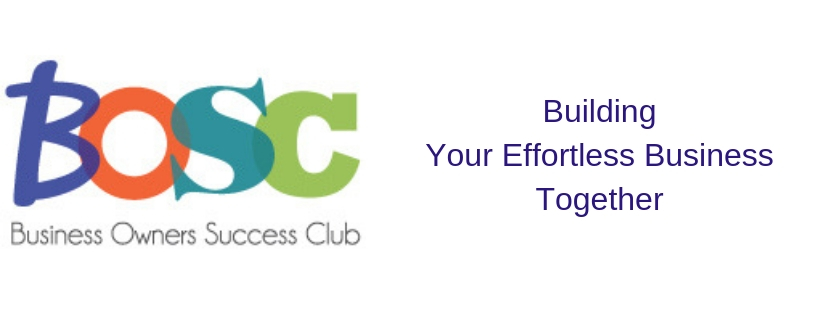The Lie
We don’t have an operating system for small businesses. We have systems that help us operate to deliver our product/service, but not a system that operates our business. Every business has many moving parts that work best when they work together and we figure out an operating system as we go. Each of us. On our own.
Most business research and support is based on large business. The MBA model of business was designed at the early part of the last century as a way to break down the functional areas of management for large businesses. Business was divided into marketing, operations, finance and HR.
You get the marketing department selling the sizzle, operations making salad, sales selling soup to nuts, at a discount today!, accounting telling everyone what they did and HR making sure all employees have a handbook and know the sick day policy.
This causes all kinds of problems around silos, lack of cooperation, communications, redundancy and bloated management. All the things that are wrong with the management of big business. Trying to apply that to your small business is like trying to use road engineering to make a path in your garden.
It’s crazy to divide the management areas of small business when it is one person or a small team working together managing the business. What you do in operations and HR is your marketing.
Somehow this is supposed to be okay, but it’s not. It’s why small business feels so difficult. We dive in with a mission and a plan, but not an operating system. How can we be expected to run an efficient, excellent business?
When you learn to drive a car, you learn how to manipulate all the moving parts in your control in a way that gets you where you want to go efficiently and safely. You learn the operating system.
My Story
I ran Crystal Clear Bookkeeping Ltd for 15 years working closely with 100s of business owners. They all worked very hard. Some struggled for years and some made incredible progress. I had to know what the difference was, so I dug deep and I got to see what worked and what didn’t. I didn’t have a service business, I had a laboratory.
After I shut the business down, I gathered everything I learned and I took a deep dive into what makes small business work. You see, I had clear evidence that business isn’t as difficult as we make it out to be. I scoured my experiences and accumulated research to find the emergent ideas. Then I tested those ideas by talking directly to business owners.
Every business owner I talked to started by saying they needed more customers/sales. I didn’t let it go at that. Peeling back the layers, what really emerged was that business owners were finding that what worked in the past wasn’t giving the same results as it had. The world is changing and customers’ options and expectations are changing. What’s a hard-working, knowledgeable business owners to do? They researched what is working for other people in their industry and they applied those same tactics to their business. On top of their existing businesses and they worked harder. And harder.
Until they were overwhelmed, and still not making progress. You see, you can’t just apply new tactics to an old model.
I noticed it wasn’t that way for everyone. So I put the successes under the microscope and here’s what I found out:
Successful business owners run lean and agile and they don’t wear many hats. They concentrate on how to make their business work for them, their customers and their staff.
What I found is that the successful businesses focused on creating an experience in their business, making their environment conducive empowering their team to help them and having a value exchange that gave everyone what they needed. Let’s break that down
Small Business Operating System (SB/OS for SBOs)
Team
Small business is lonely and yet, even one person operations have a large team around them. Your peers are a very important part of your team because they know exactly what you are going through and they have knowledge and experience to share. Your community has a vested interest in you succeeding. Everyone from your local coffee shop, suppliers, Town council and even your bank, accountant and small business support groups benefit when you succeed.
The three most important teams for your business are your customers, your staff and you, the owner.
Every successful business is built around those three teams and the journey they take with your business. You have to think of it as a journey, not a series of transactions. If you think of your customers as part of your team, it changes the relationship you have with them and opens up opportunity to make a difference. If you think of your staff as having a journey with you, you can see the value in investing in their experience.
For every group and as much as possible for every individual, create a journey they can follow to make them thrilled to be a part of your team. Look at this journey using the following 3 lenses
Experience
The best businesses have a carefully crafted experience. It’s the difference between a restaurant that serves food and one that makes an occasion. You know what I mean. You walk into a place and you feel it. It doesn’t matter if it’s a restaurant, a lawyer’s office or a store. There’s something about the place that invokes a reaction within you. You want to be there, you trust that it will be good and the whole experience is special.
I went to TEDGlobal in 2009. You’ve seen TED talks, if you look you can see me in the audience of a couple of them. Everything about that week was carefully crafted to make it special. In fact, if a TEDx organizer wants to host an event larger than 100 people, they have to have experienced a TED event so they can recreate some of that experience.
Environment
Have you ever misplaced your keys? I used to. I don’t any more because I have a little basket beside the door where I keep my keys. Your environment goes into creating your experience, and it is much more than that. Your environment makes your business easier or harder. Every time one of your team has to take extra steps (physical or metaphorical), there is an opportunity to tweak your environment.
Your environment includes your mind. Fill your mind and those around you with good thoughts. This is an important part of the training process. I’ve been in businesses where I hear the staff complain about or mock customers. The customer is king. They may not always be right or right for you, but if it weren’t for them, you wouldn’t have a business and they deserve respect and consideration. When I hear people, including myself, talk about how their customers just don’t get it, I know there is gap in expectations and an opportunity to fix it.
Value Exchange
Everyone’s instinct is to lower price until someone buys. Then you know you have the right price point. What really successful people do is they choose the price they want to charge, then pile on the value until someone buys. Of course that is very simplistic. The point is that a lower price is not the answer, providing plenty of value is.
Problems occur when business owners want to offer a great solution, then offer a low price that makes it difficult to fulfill that promise. The people who come to you for low price are not the ones that will convert to higher prices. The only time the lower price strategy works is if you are trying to get rid of stuff and you don’t care to build long-term customers; or you want to experiment to find solutions before you build a customer base around those solutions.
What does this mean for your business?
Think about your best customers. How did they come to you? What triggers them to come back? What do they appreciate about you? What do they tell themselves and their friends about you? How can you make their experience better? What can you do to make life easier for them and for you to serve them? What do they value?
Ask them.
Think about your favourite staff. How did they come to you? What makes them stay with you? What do they tell themselves and their friends about you? How can you make their experience better? What can you do to make life easier for them and for you to serve them? What do they value?
Ask them
Think about your life. What made you start this business? What makes you stay with it? What are the best parts of it for you? What do you tell yourself and your friends about it? How can you make your experience better? What can you do to make life easier for you and how can your business serve you better? What do you value?
Ask yourself
For help, do this reflection exercise. Your answers will help with continued research. If you want, fill in your email and we can arrange a 30 minute call to take it deeper.
As an operating system, building your business around the journey your customers, your staff and you take with your business makes more sense than the divide and conquer management system for big business.
Get the 20 page SB/OS workbook when you sign up for the newsletter.

